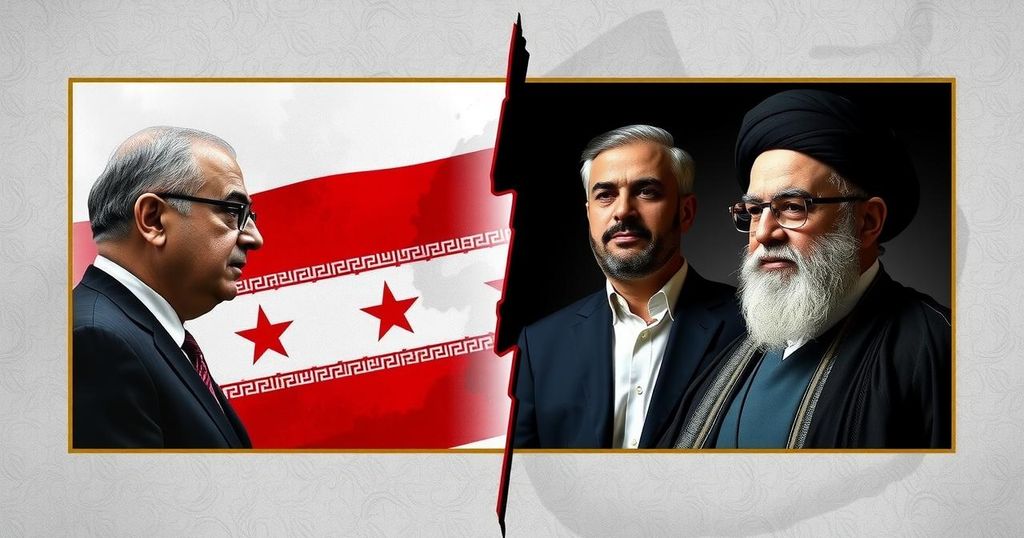Iranian Establishment Divided as Assad’s Regime Falls in Syria

The collapse of Bashar al-Assad’s regime in Syria has divided the Iranian establishment, with varying opinions on foreign policy direction. The rapid advance of rebels surprised Tehran, prompting discussions on future strategies and the ideological commitment to Syria. Some see the upheaval as a chance for reevaluation, while concerns grow over Iran’s waning influence and its implications for the nuclear program.
The rapid decline of Bashar al-Assad’s regime in Syria has left the Iranian establishment divided regarding its foreign policy direction. Iranian authorities were taken aback by the swift advances of rebel forces, which captured key cities with minimal resistance. Reports suggest the Iranian military presence faltered when Hezbollah fighters shifted their focus to confrontations with Israel, leaving strategic territories vulnerable. Initial media narratives shifted from branding rebels as “terrorists” to merely “armed groups” as the situation evolved.
In response to Assad’s regime crumbling, speculations arose regarding guarantees from the main rebel faction, Hay’at Tahrir al-Sham, to protect Shia shrines, aimed at assuaging the concerns of Iran’s religious authority. In Iran, sentiments about the establishment’s handling of the crisis are mixed. Some view the loss of Assad as a failure of Iranian foreign policy, while others argue it opens opportunities for reevaluation, shifting focus from rigid ideological commitments towards more pragmatic national interests.
There exists a notable divergence among decision-makers in Tehran about future strategies in Syria. One faction advocates maintaining ties with HTS and seeking diplomatic routes, while another prioritizes enhancing proxy groups within the country. Furthermore, Iran’s supreme leader downplayed the significance of Assad’s fall, asserting that the resilience of what he describes as the Resistance Front remains intact, dismissing external perceptions of weakness.
Amidst these developments, Iran’s foreign minister indicated potential shifts in political alliances within the region due to discontent amongst certain Arab states. Analysts suggest that the loss of influence in Syria may precipitate a similar erosion of power in Lebanon, raising concerns about the wider implications on Iran’s geopolitical standing, including threats to its nuclear program.
The dynamics in Syria present both challenges and recalibrations for Iran, potentially fostering new strategies to sustain its ideological influence while contending with external pressures and diminished leverage across its existing network in the region.
The article examines the Iranian establishment’s response to the rapid fall of Bashar al-Assad’s regime in Syria and emphasizes the ensuing divisions within Iran’s political landscape regarding foreign policy strategies. Iranian officials expressed surprise at the speed and efficiency of rebel forces against the Syrian army, leading to discussions about alliances, ideological commitments, and the evolving regional dynamics influenced by the conflict. This loss precipitates broader repercussions not only for Iranian influence in Syria but also for its alliances in Lebanon, potentially affecting Iran’s strategic posture regarding its nuclear ambitions.
The swift downfall of Assad’s regime has catalyzed significant discord within the Iranian establishment regarding its foreign policy. This scenario compels Iranian officials to reassess their approaches, with significant implications for the nation’s geopolitical influence throughout the region. As divisions surface, the future of Iran’s involvement in Syria and its larger strategic calculations remain uncertain, underscoring the evolving landscape of regional power dynamics.
Original Source: www.middleeasteye.net








